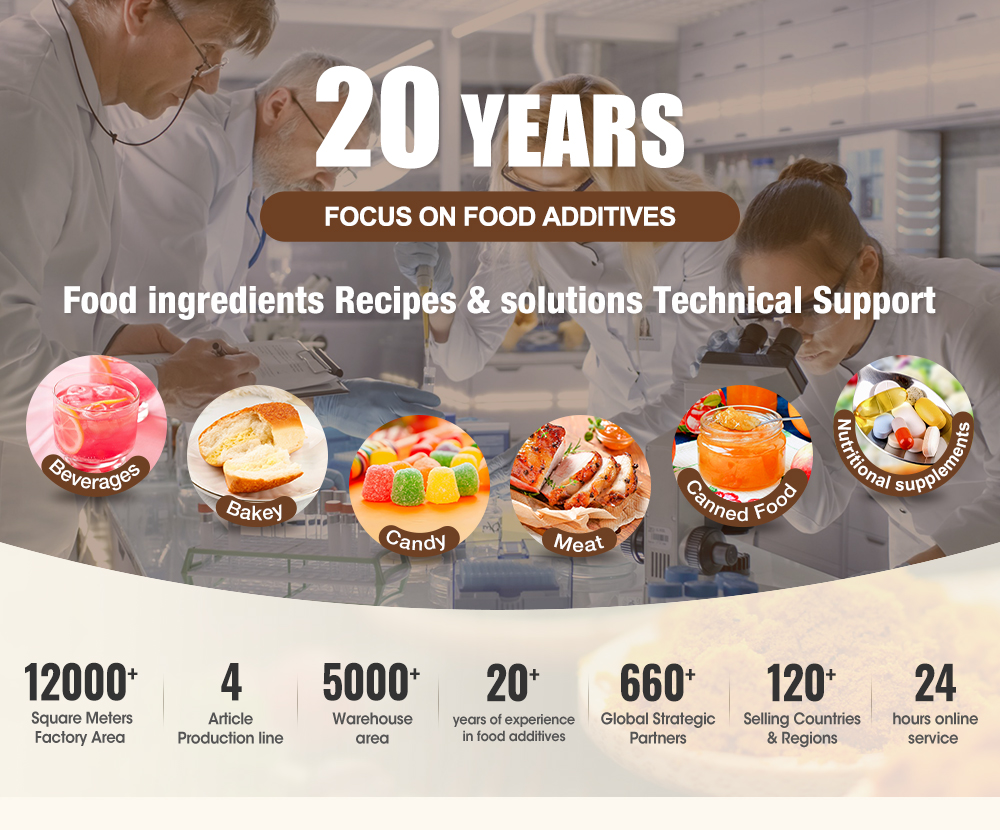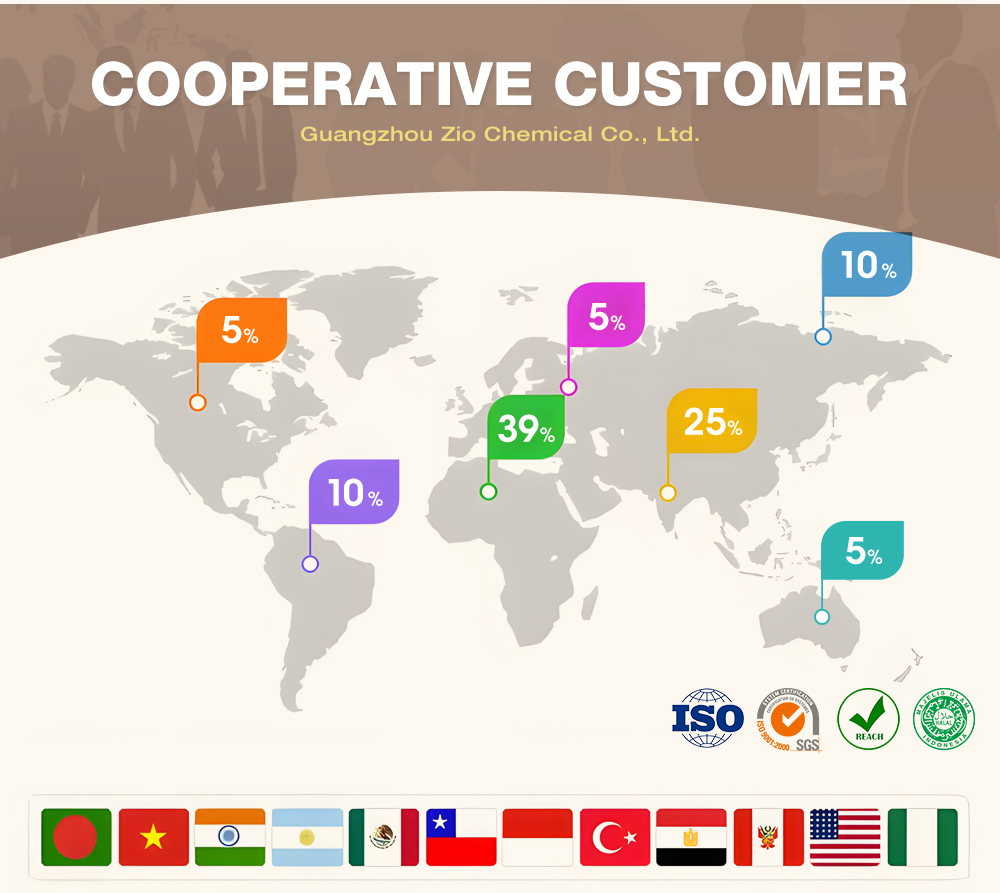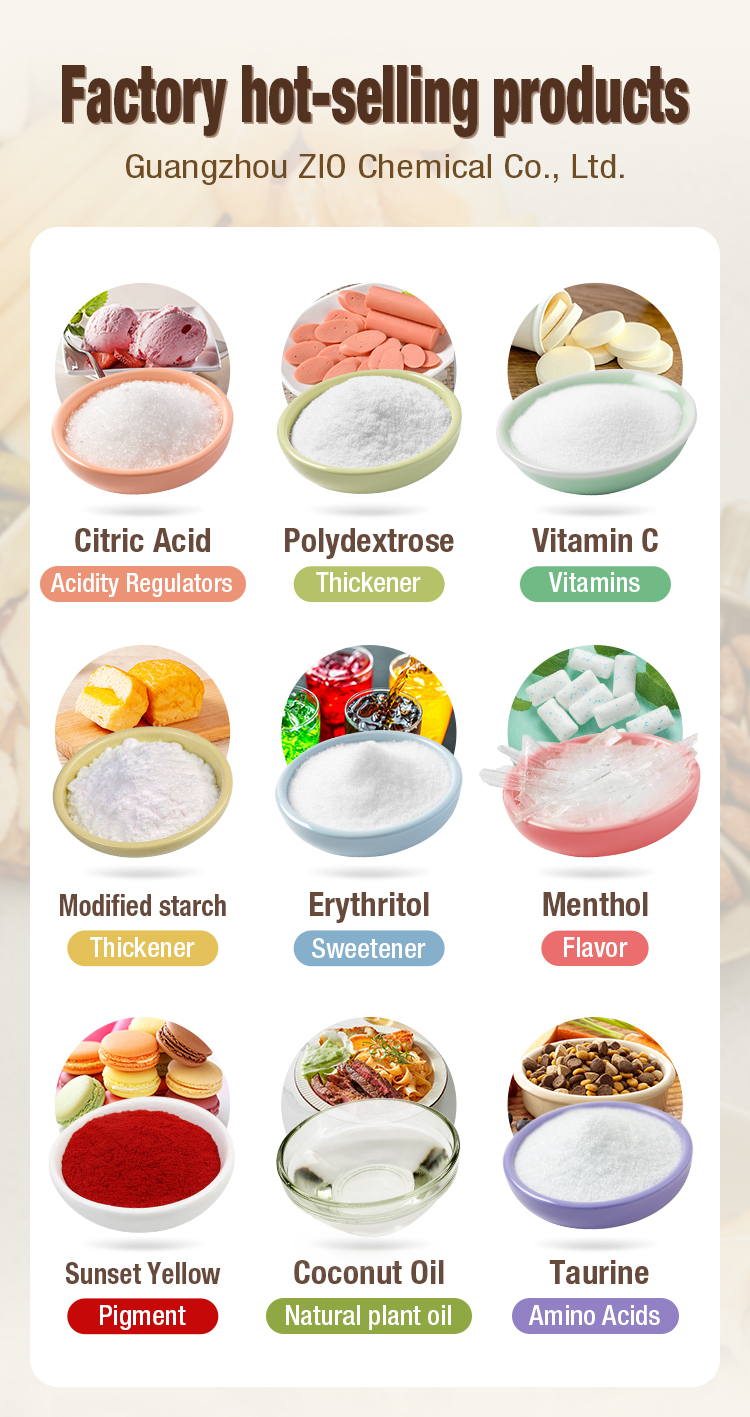| Availability: | |
|---|---|
| Quantity: | |











Sodium Benzoate (CAS No.: 532-32-1, E Number: E211) is a cost-effective preservative derived from benzoic acid, presented as a white granular powder. Ideal for acidic food preservation, it boasts ≥99.5% purity, moisture content ≤ 1.5%, and pH 8.0–10.0 (1% aqueous solution). Compliant with FDA 21 CFR §184.1733, EU Regulation (EC) No. 1333/2008, and China’s GB 1886.184-2022, it has a JECFA-approved ADI of 5mg/kg·bw
Acid-Stable Preservation: Exhibits maximum efficacy at pH 2.5–4.0, inhibiting mold and yeast growth in acidic foods by 99.9% (e.g., carbonated drinks, pickles)
Cost Advantage: 60% lower cost than potassium sorbate with equivalent efficacy in high-acid products, reducing raw material costs for beverage manufacturers
Solubility & Dispersion: Dissolves completely in water within 2 minutes (1g/2mL water at 25°C), eliminating clumping in liquid formulations
Color Preservation: Retains natural pigments (anthocyanins, carotenoids) in fruit products by 80% during 6-month storage, outperforming calcium propionate
Broad Compatibility: Blends seamlessly with other preservatives (e.g., sorbic acid) to extend antimicrobial spectrum, reducing total preservative usage by 30%
Carbonated Beverages: Added at 0.02%–0.05% in cola and fruit sodas. Prevents yeast fermentation and maintains carbonation for 12 months
Pickled Products: Incorporated at 0.05%–0.1% in pickles and sauerkraut. Inhibits lactic acid bacteria overgrowth and retains crisp texture for 9 months
Fruit Preserves: Used at 0.05%–0.15% in jams and marmalades. Prevents mold growth and syneresis (whey separation) during 18 months of shelf life
Acidic Sauces: Mixed at 0.05%–0.1% in ketchup and vinegar-based dressings. Stabilizes flavor and prevents bacterial spoilage for 6 months

Q: Is sodium benzoate safe with vitamin C-containing foods?
A: Yes, when used correctly. At pH < 3.5 and temperatures < 40°C, benzene formation is negligible (< 1ppb)—well below FDA’s 5ppb limit for beverages
Q: Can it replace potassium sorbate in all foods?
A: No. It is ineffective at pH > 4.5 (e.g., bread, milk), where potassium sorbate is preferred. Use in acidic products for optimal cost and efficacy
Q: What’s the shelf life and storage requirement?
A: Store in airtight containers at 15°C–30°C, humidity ≤ 70%. Shelf life extends to 36 months; avoid contact with strong oxidizers to prevent degradation
Sodium Benzoate (CAS No.: 532-32-1, E Number: E211) is a cost-effective preservative derived from benzoic acid, presented as a white granular powder. Ideal for acidic food preservation, it boasts ≥99.5% purity, moisture content ≤ 1.5%, and pH 8.0–10.0 (1% aqueous solution). Compliant with FDA 21 CFR §184.1733, EU Regulation (EC) No. 1333/2008, and China’s GB 1886.184-2022, it has a JECFA-approved ADI of 5mg/kg·bw
Acid-Stable Preservation: Exhibits maximum efficacy at pH 2.5–4.0, inhibiting mold and yeast growth in acidic foods by 99.9% (e.g., carbonated drinks, pickles)
Cost Advantage: 60% lower cost than potassium sorbate with equivalent efficacy in high-acid products, reducing raw material costs for beverage manufacturers
Solubility & Dispersion: Dissolves completely in water within 2 minutes (1g/2mL water at 25°C), eliminating clumping in liquid formulations
Color Preservation: Retains natural pigments (anthocyanins, carotenoids) in fruit products by 80% during 6-month storage, outperforming calcium propionate
Broad Compatibility: Blends seamlessly with other preservatives (e.g., sorbic acid) to extend antimicrobial spectrum, reducing total preservative usage by 30%
Carbonated Beverages: Added at 0.02%–0.05% in cola and fruit sodas. Prevents yeast fermentation and maintains carbonation for 12 months
Pickled Products: Incorporated at 0.05%–0.1% in pickles and sauerkraut. Inhibits lactic acid bacteria overgrowth and retains crisp texture for 9 months
Fruit Preserves: Used at 0.05%–0.15% in jams and marmalades. Prevents mold growth and syneresis (whey separation) during 18 months of shelf life
Acidic Sauces: Mixed at 0.05%–0.1% in ketchup and vinegar-based dressings. Stabilizes flavor and prevents bacterial spoilage for 6 months

Q: Is sodium benzoate safe with vitamin C-containing foods?
A: Yes, when used correctly. At pH < 3.5 and temperatures < 40°C, benzene formation is negligible (< 1ppb)—well below FDA’s 5ppb limit for beverages
Q: Can it replace potassium sorbate in all foods?
A: No. It is ineffective at pH > 4.5 (e.g., bread, milk), where potassium sorbate is preferred. Use in acidic products for optimal cost and efficacy
Q: What’s the shelf life and storage requirement?
A: Store in airtight containers at 15°C–30°C, humidity ≤ 70%. Shelf life extends to 36 months; avoid contact with strong oxidizers to prevent degradation
High Efficacy: Effectively extends the shelf life of food products by preventing microbial growth, ensuring safety and freshness.
Strong Safety Profile: Complies with food additive regulations and is widely accepted in the food industry, making it a safe choice for consumers.
Improves Food Stability: Helps maintain the integrity of food products, preventing spoilage and deterioration over time.
Versatile Applications: Suitable for a wide range of food types, including both acidic and non-acidic products, enhancing its utility across various formulations.
Widely Used and Researched: As a well-established preservative, sodium benzoate has a long history of safe use in the food industry, contributing to consumer confidence.












High Efficacy: Effectively extends the shelf life of food products by preventing microbial growth, ensuring safety and freshness.
Strong Safety Profile: Complies with food additive regulations and is widely accepted in the food industry, making it a safe choice for consumers.
Improves Food Stability: Helps maintain the integrity of food products, preventing spoilage and deterioration over time.
Versatile Applications: Suitable for a wide range of food types, including both acidic and non-acidic products, enhancing its utility across various formulations.
Widely Used and Researched: As a well-established preservative, sodium benzoate has a long history of safe use in the food industry, contributing to consumer confidence.











